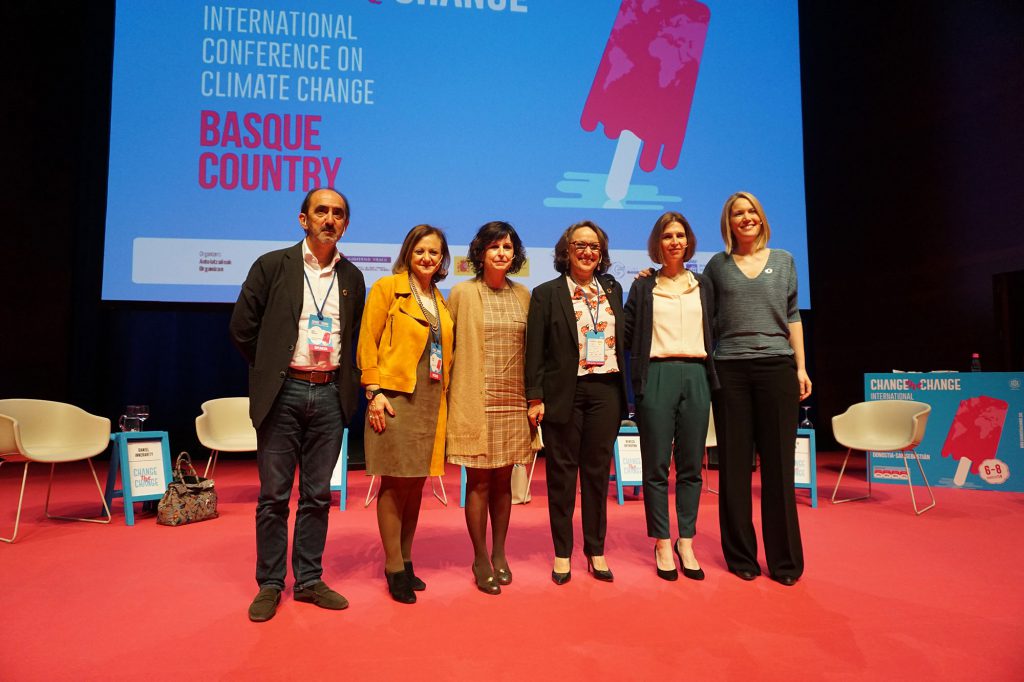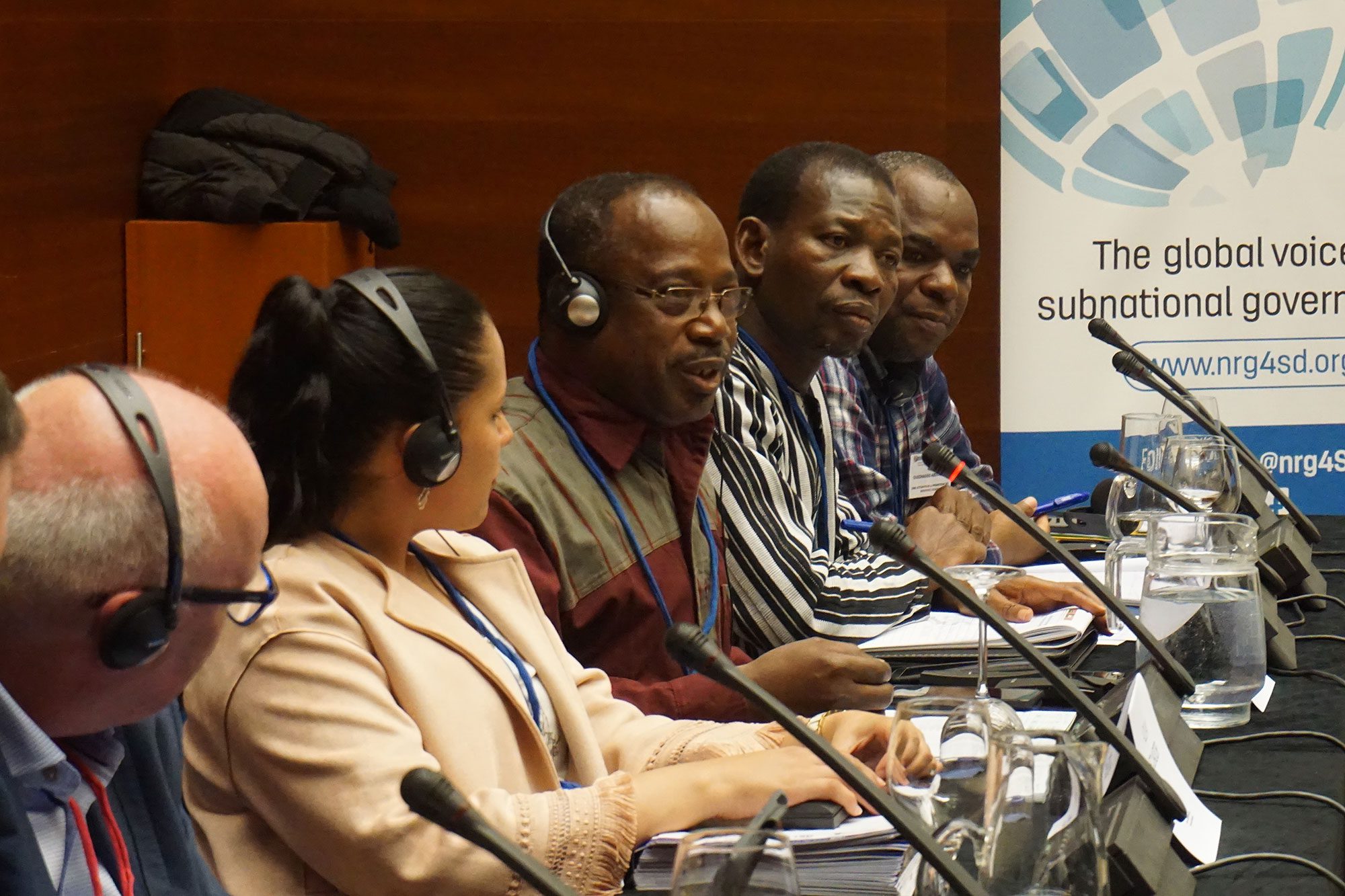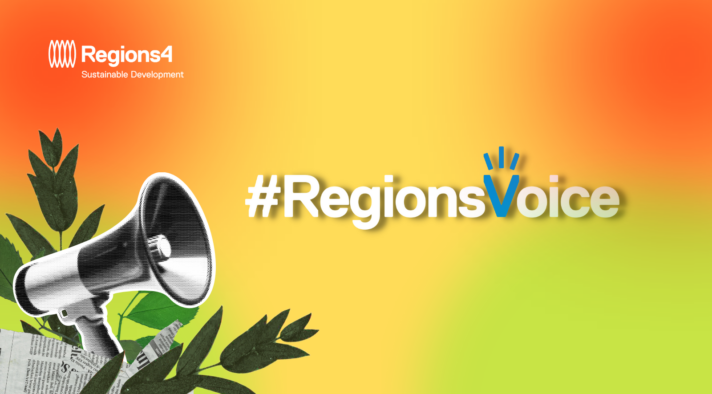The International Conference on Climate Change “Change the Change” took place from 6 to 8 March in Donostia/San Sebastian, in the Basque Country, Spain. The conference brought together national, regional and local public authorities, as well as international organisations, academia and scientists, NGOs, private sector representatives and civil society. As part of the United Nations Momentum for Change initiative and in line with the Paris Agreement, the conference sought to engage civil society on the topic of climate change by promoting understanding and ownership. The sessions of the conference covered eight thematic topics, namely Science for Action; Regional Environment; Cities; Sustainability; Energy Transition; Economy; Education, Culture and Society; and Leadership of Women. Each of the sessions provided key insights and discussions on the current state of climate change, its impacts and challenges, as well as successful responses, and the role played by different stakeholders in this regard.
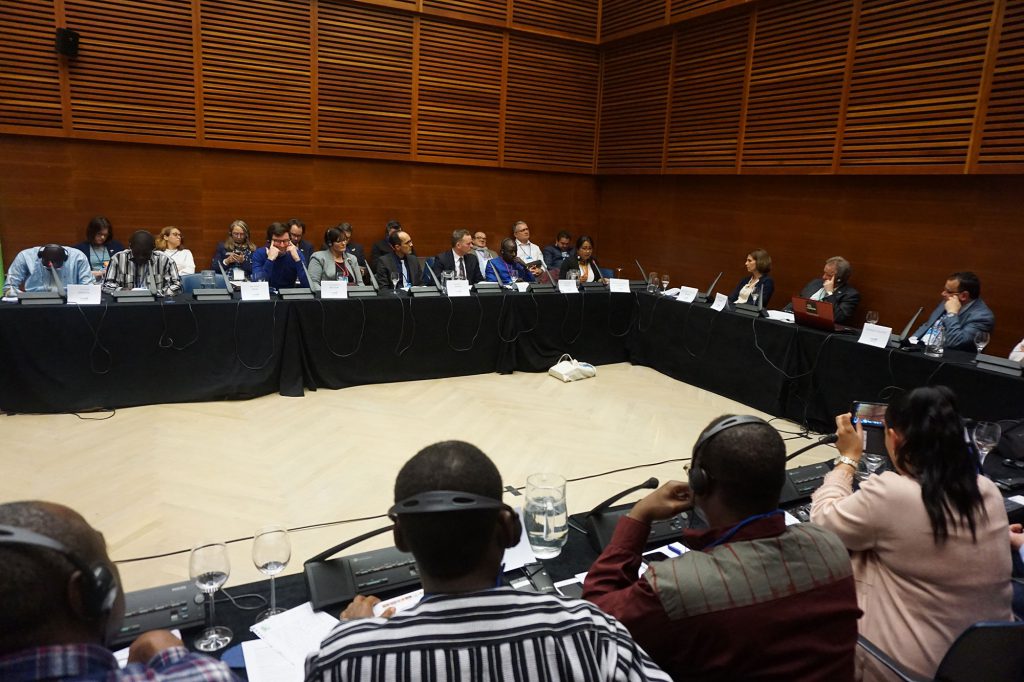
On Wednesday, 6 March, Regions4 member Lombardy participated in the session on Regional Environment, where he described climate change as a ‘glocal’ problem since it is a global but also heavily local problem. Impacts are faced locally and the majority of policies that address climate change are being implemented also on the local level. He shared the current and future developments in Lombardy in terms of climate change impacts, as well as Lombardy’s commitments in mitigation and adaptation. He further gave insight into the principles (mainstreaming, participation, cost-benefit assessment) and priority areas of adaptation (human health and air quality; land protection and water management; agriculture and biodiversity; tourism and sport) in Lombardy and stressed the importance of horizontal integration of climate change among all sectors and policies. In addition, Lombardy shared the region’s mitigation approach through the Energy & Environmental Programme that foresees GHG emission reductions in the building, industry, transport and agricultural sectors.
On the second day of the conference, Thursday, 7 March, the Regions4 Secretary General was part of the session on Sustainability. She pointed out that the 2030 Agenda is a socially integrating, universal agenda with citizens at the heart of it, leaving no one behind. She further stressed the need for vertical integration and multi-level governance in order to implement the 2030 Agenda effectively, as well as a bottom-up approach with multi-stakeholder participation that complements the top-down approach of governments. In addition, she emphasised the need for a multi-sectoral approach and calls for the end of working in silos. She also shared best practices in the regional implementation of the SDGs, such as in the Basque Country and Western Province (Sri Lanka), as well as results from Regions4 report “Localising the SDGs: regional governments paving the way.”
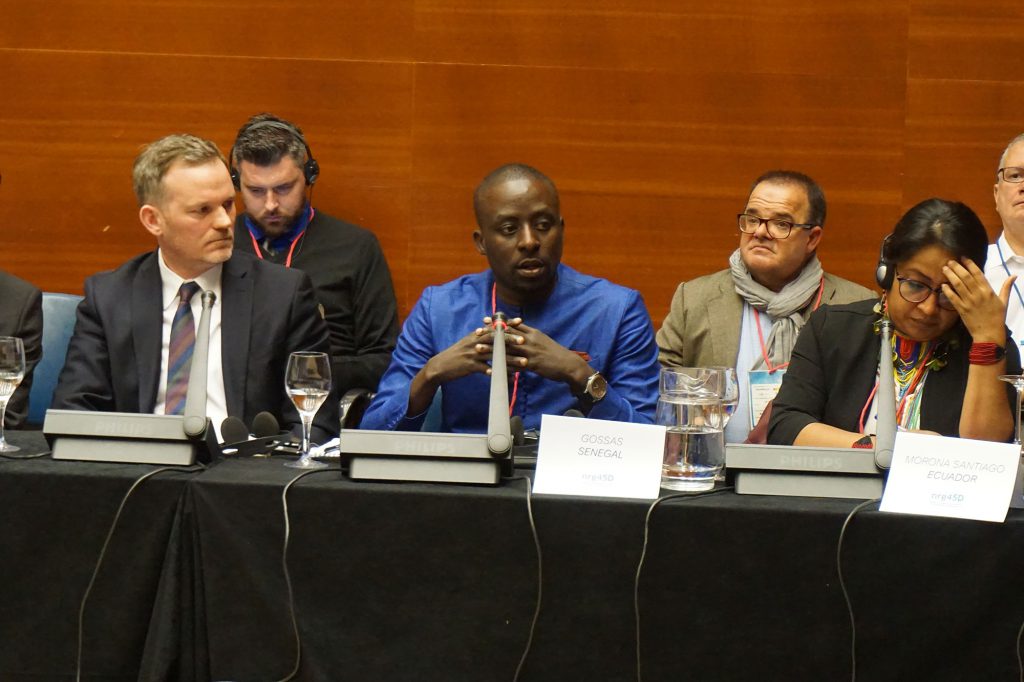
The conference programme was enriched by special sessions of inspiring actions by so-called heroes and heroines of the planet. The purpose of these sessions was to lower the theoretical debate on climate change to real projects that are achieving results. The sessions focused on women in STEMM (Science, Technology, Engineering, Mathematics and Medicine), food choices and how design can contribute to addressing climate change.
All sessions of the conference were broadcasted live and can be accessed here.
In addition to the thematic and special sessions, on Thursday, 7 March, Regions4 held the workshop “Subnational cooperation on climate change.” The workshop highlighted the key role of regional governments in the fight against and response to climate change, through ambitious policies and actions. It further showcased the exponentiated potential of regions cooperating on topics of joint concern. Participants shared cooperation examples, as well as discussed international initiatives and coalitions, such as RegionsAdapt or the Under2 Coalition. Regions4 members who attended the workshop and presented their cooperation approaches included: Azuay (Ecuador), the Basque Country (Spain), Centre Nord (Burkina Faso), Flanders (Belgium), Gossas (Senegal), Louga (Senegal), Morona Santiago (Ecuador), and Québec (Canada). They were accompanied by Baden Württemberg (Germany), Central Denmark (Denmark), and the Eastern and Midland Regional Assembly (Ireland).
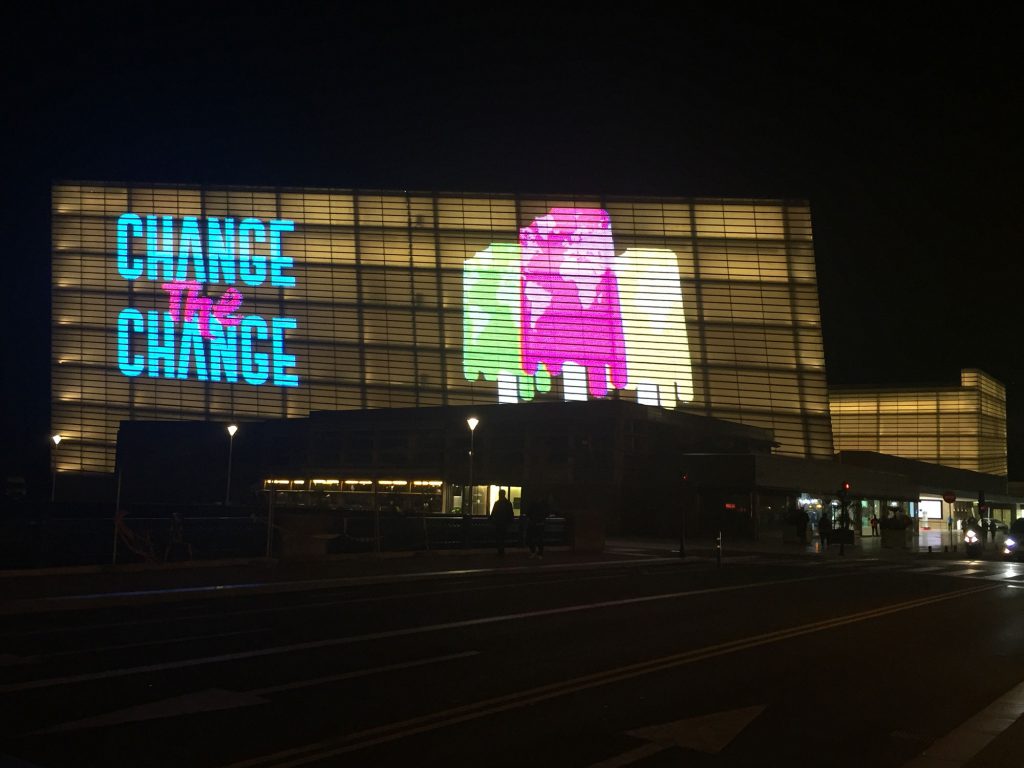
In the course of the workshop, Azuay stressed the importance of international networks and initiatives like Regions4 and RegionsAdapt to advance their different projects and exchange knowledge on challenges and successes. They presented the three key components of the work of the province, namely the concept of eco-democracy, human rights and freedoms, and a social model of production. The province is integrating these key components in a project they are carrying out together with UN Women, which aims to empower women (human rights and freedoms), teach sustainable agricultural practices to women involved in the sector (model of social production) in order to not negatively affect the Páramo ecosystem, and educate women in monitoring water quality (eco-democracy).
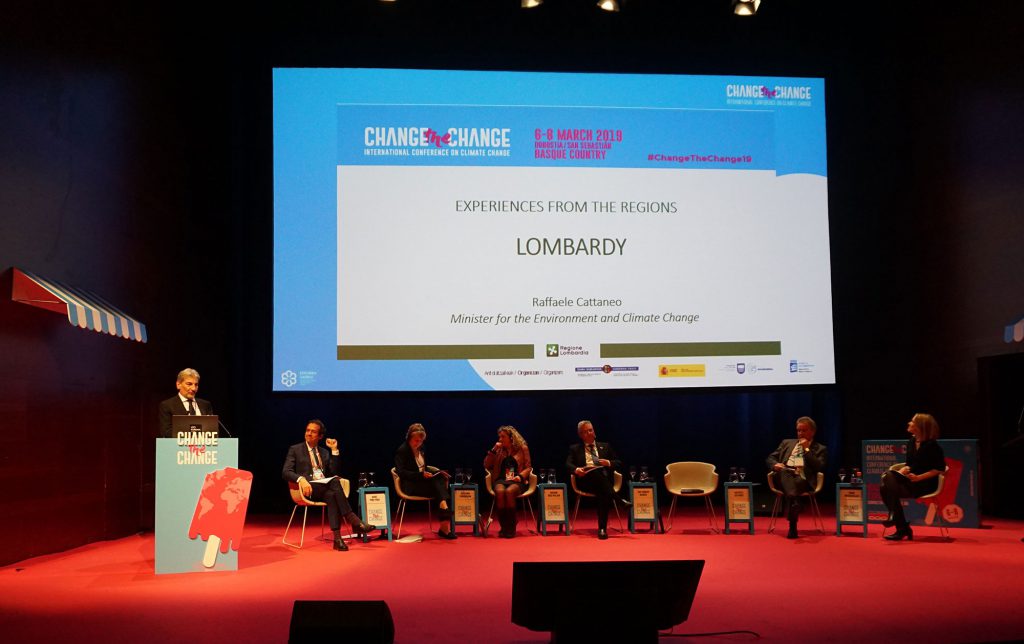
Gossas presented several projects of cooperation, including North-South cooperation with a French region on renewable energy, and an environmental education project with Catalonia in Spain. They further stressed the issue of financing climate actions and pointed out the close relationship to the province of Québec, which in turn presented another example of subnational cooperation on climate change: The Western Climate Initiative (WCI). The WCI is a group of American states and Canadian provinces that have decided to adopt a common approach toward addressing climate change, in particular by developing and implementing a North American system for capping and trading GHG emission allowances. The revenue of this emissions trading programme is in turn used by Québec to finance other climate projects, also internationally.
Louga presented a project they are carrying out with the support of Luxembourg on training workshops for women and young people on biodiversity. They also emphasized the importance of networks, who can support regions to continue with projects even if a partner withdraws. Centre Nord showcased a number of projects, among them a project to develop disaster-resilient communities through training, public information and early warning systems through radio and television.
As pointed out, the province of Morona Santiago is developing and implementing various projects on climate change with a special emphasis on the role of women, including to increase the participation of women in decision making. A special concern lies on the issue of traditional knowledge. In order to not lose this kind of knowledge, which is most often only transmitted orally, the province aims to establish a teaching centre to teach and transmit this traditional knowledge. Last but not least, Flanders showcased a joint project with the Netherlands and North Rhine-Westphalia in Germany in the chemical industry, where the three partners developed a common strategy with a strong focus on climate change. He stressed that, especially when facing similar challenges, approaching these individually can cause problems of competition and inefficient processes.
The workshop showed once again the importance of cooperation among different regions, especially in the topic of climate change, where impacts transcend borders and only joint ambitious actions can limit those impacts to a minimum.
